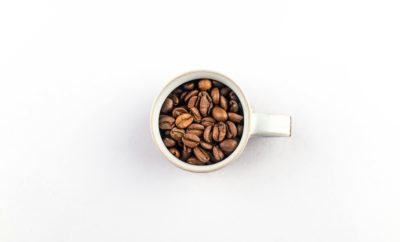
Simple Culinary Hacks To Help You Save Money
Do you regularly find slightly soggy vegetables in the back of your fridge that end up being thrown in the bin or onto your compost heap? Or do you find opened jars in your fridge whose contents should have been eaten months ago? If you answered yes, you are not alone. Many people throw out large quantities of food each month – but often are unaware they are doing so.
And all the food that ends up in the bin is wasted money. So we have put together some top culinary hacks to help you make the most of the food you buy each week, to help you save money and to help cut down on waste.
Plan Your Meals
By creating a menu of what you will be eating with your family each week, you can plan exactly what food you need and the quantities you will require. By planning your meals ahead you will also know your budget and going shopping armed with a list of food should stop those impulse buys that tempt you on every aisle of the supermarket. By meal planning, it will also hopefully enable you to have a healthier lifestyle.
By meal planning, you should also not need to do any ‘top up’ shopping during the week. The key to meal planning is to check your cupboards first – if you have any of the ingredients in stock, you do not need to buy more of them so you won’t be doubling up on buying food each week.
Food Storage
Storing your food correctly is vitally important. You should always check the best way to store your food and then follow these guidelines. Canned and tinned goods are often the main culprits – older tins can sit at the back of a cupboard as they last for a long time and you can forget to check the dates on them on a regular basis. Stock rotation is important – always store your newly bought tins at the back of the cupboard and move older tins forward. This way your canned goods will not go out of date and you will not be wasting food and money.
Simple tips such as putting fresh herbs in water will help prolong their lifespan – many supermarkets now sell herbs in pots so if you water these appropriately, they will last a lot longer than a handful of cut herbs, taste better than dried herbs, and will be the more cost effective solution in the long term.
Know Your Fridge
It is important to know how to store food in your fridge correctly. The first thing is to ensure your fridge is running at the correct temperature – Keep the refrigerator temperature at or below 40° F (4° C). You should check the temperatures regularly. Appliance thermometers are the best way of knowing these temperatures and are generally not very expensive.
The correct way to store food in a fridge is to have the salad, fruit and vegetables in the bottom drawer. Raw meat, poultry and fish should be kept covered and in sealed containers on the first shelf from the bottom. Ready to eat food such as cakes, butter, cooked meats and other packaged food should be on the next shelf up, and then food such as yoghurts and cream should live on the top shelf.
As with your cupboards, practice stock rotation to ensure you don’t end up with soggy vegetables at the back of your fridge.
Use by vs Best Before
Do you know the different between ‘Use By’ and ‘Best Before’? It is a common confusion and many people are unaware of the difference.
Use By is when a product must be used by.
Best Before is a judgement call – it will taste best before the date but it can be used past it’s best before date. Use your eyes and nose to determine whether you can still eat these products or not.
Portion Sizes
Know your portion sizes. By cooking appropriate amounts and plating well, not only will you be maintaining a healthier lifestyle but you will also be helping your wallet by ensuring there are no leftovers to scrape into the bin.
Cooked food can often be kept in the fridge as leftovers so it is better to not plate quite enough food and then be able to store the leftover food, than to serve too much and have to throw lots of food waste away.
Invest in a Freezer
A freezer is a great way to help you save money. It can often be cheaper to buy in bulk. If you have a freezer, you may be able to store extra portions of food. Lots of foods can be frozen – you can freeze portions of fresh herbs in ice cube trays and water and then pop an ice cube out and place it in your sauce for fresh seasonings. Things like cheese, wine, pesto and milk can also be frozen and are ideal to have as an emergency stockpile.
You can also freeze many fruits and vegetables – so buy in bulk when they are in season and cheap and freeze (some do better when they are blanched first) and defrost during the off-season.
The key to freezing food is to label everything clearly in freezer-proof containers to make the food easy to locate and catalog.
Don’t Be Enticed By Special Offers
Don’t be enticed into buying multiples of things if you aren’t going to use them. That large tin or container might look like it’s cheaper however if you throw half of the food away because it’s gone off before you have used it all, it’s a false economy. The only time where it pays to buy special offers is where the food will keep – for example extra loaves of bread can be frozen, and tins will last several years and are likely to be used up in that time.
Always buy what you will be able to use otherwise you will just end up with a bin full of food waste.
Write Down Your Waste For a Month
Write down on a whiteboard or notepad all the food and drink you throw away in a month – make sure you note down the approximate amount too. At the end of the month, work out an approximate value of all the food you have thrown away – you may be surprised how much money has gone in the bin!
By writing down exactly what food gets thrown, it will help you understand exactly what food you are over-buying. This should help modify your shopping habits so that you only buy the food that your family will consume in a week.
So those are our top tips for helping to reduce food waste and help you save money in the kitchen. Do you have a good tip for helping reduce food waste? Share your top culinary hacks in the comments section below!






0 comments